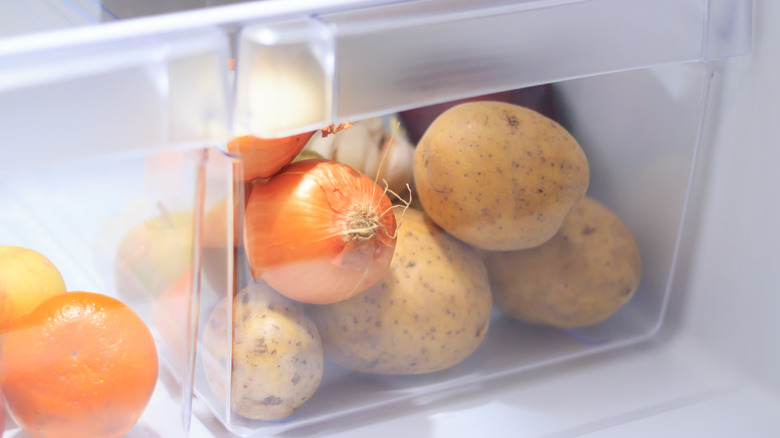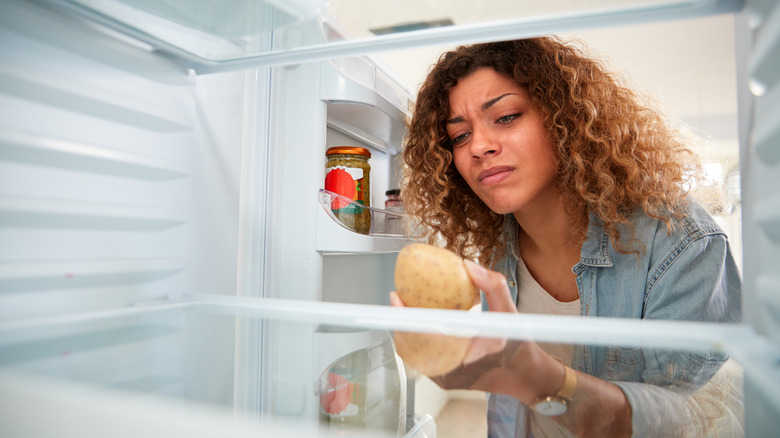What Happens If You Refrigerate Raw Potatoes?
When it comes to kitchen must-haves, potatoes are near the top of the list. This starchy vegetable is tasty in a seemingly infinite array of dishes, from potato salad and french fries to gratin and basic roast potatoes. Whether the spuds are side-dishing it next to a protein like roast chicken, shining in a Spanish tortilla, or finding their way into baked goods, as far as we're concerned, potatoes are a pantry staple. Potatoes, like other root vegetables, are long-lasting, staying fresh for up to three months when stored in dark, cool, and dry environments like a pantry or the root cellars of the olden days (via Southern Living).
Those of us living in apartments might not have pantries — and much less a root cellar — at our disposals. If you're wondering if you can store your potatoes in the fridge to keep them cool and dry, the answer is no. Here are some key reasons why you should never keep your raw potatoes in your refrigerator.
Potatoes last longer at around 50 degrees
You may be used to piling your fresh vegetables into the crisper drawer after a trip to the farmer's market, but you should stop and think before doing the same with your potatoes. According to Southern Living, potatoes just don't keep well in the fridge. They actually last longer at somewhat warmer temperatures as long as they're in a cool, dark, and dry environment. Think 50 degrees, as opposed to a typical fridge's 35 to 38 degrees. If you don't have a pantry, you can dedicate a cupboard or drawer located in a cooler part of your kitchen to potato storage, suggests Food52.
Southern Living explains that in addition to shortening their shelf life, refrigerating potatoes may alter their chemical structure in an unpleasant way. When potatoes are stored at temperatures less than 50 degrees, the starches in the spuds start to convert to sugars, leading to discolorations and off-flavors. Additionally, as noted by the U.S. Food and Drug Administration, fridge-stored potatoes will produce more acrylamide when cooked, a chemical that has been found to cause cancer in animals. All in all, it's best to find another storage method for this beloved ingredient.

